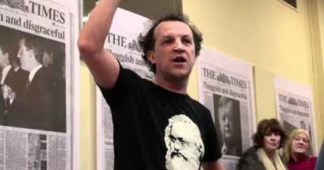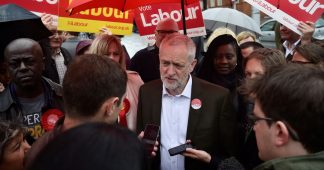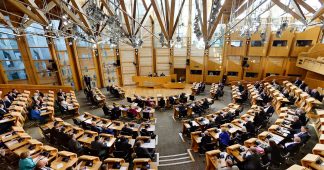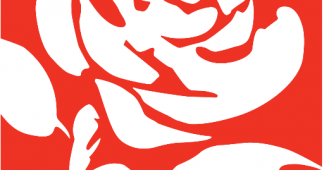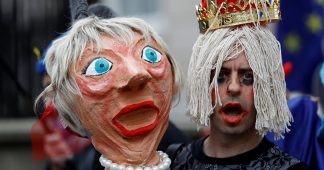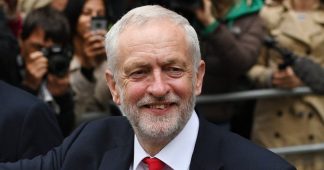By Radhika Desai and Alan Freeman
Even in an age of political and electoral upsets, Thursday’s U.K. election contained so many shocks that commentators ran out of superlatives. Historic Conservative losses and Labour gains, the setback to Scottish independence, the demise of Hard Brexit and a triumphal result for Sinn Fein were topped off by the humiliating spectacle of a minority Conservative government relying on a bigoted Unionist rump in Northern Ireland.
These outcomes are not random, but are the maturation of historic problems of the U.K. state. The key lies in the Tory party itself, whose vote share has been declining since the 1970s. For the third time in as many years, the Conservative leadership gambled to shore it up: David Cameron’s promise of a Brexit referendum to secure his 2015 victory, the referendum itself and Theresa May’s snap election.
The first gamble seemed to work, but appearances were deceptive. Cameron would have been well advised to shelve his referendum promise quietly. Instead, breezily assuming that Remain would win hands down, he held the vote and Remain lost (“Brexit earthquake has many ruptures,” Winnipeg Free Press, July 2, 2016). Cameron then departed and, with key leadership figures discredited thanks to the Tories’ mounting internal divisions in the wake of the shocking referendum result, the party was scraping the bottom of the barrel for leadership candidates when May surfaced.
After less than a year in office, she called the snap election she had hitherto denied would ever happen, allegedly because she wanted a stronger hand in the upcoming Brexit negotiations. In reality, it was because a 17-seat majority gave too much power to her opponents in the party. She also hoped to profit from the war that a Blairite-influenced Labour caucus had been waging against Jeremy Corbyn, elected leader in 2015 and to the left of many of his MPs. In these conditions, May thought she could dispatch Labour to the dustbin of history once and for all.
The insecurity and desire for control that led to her gamble worked against her and her party during the campaign. She appeared robotic and unresponsive and refused to take part in the usual leaders debates on TV or engage in much door-to-door canvassing. The Tory manifesto, clearly drafted with little or no inner party consultation, was disastrously ill-conceived and led to U-turns on critical parts of the platform. Her attempt to use the tragic terrorist attacks that occurred during the campaign against Corbyn backfired.
Rather than the 100-seat majority she expected, the election turned a 17-seat majority into an eight-seat deficit. Having taken a hard stand in favour of Brexit for its electoral dividends, she found her party was not the only beneficiary of the collapse of the UKIP vote: Labour benefited, too. Moreover, her manifesto, with its austerity policies and its infamous “dementia tax,” turned off the young and old alike, leading to losses of heritage Conservative seats such as Canterbury in the southeast, the south coast and the home counties.
May’s Tory party came across not as “strong and stable,” but rather as weak and wobbly. The contrast with Corbyn’s campaign could not have been greater. Corbyn’s team set its own terms, refusing her focus on Brexit and shifting it to the sort of society and economy Britons want. The results could not have vindicated him more.
Labour issued a powerful and convincing anti-austerity manifesto, with well-costed promises to restore key services and benefits, abolish tuition fees that had been indebting students since the Blairite years, nationalize (yes, you read that right) the rail services and initiate a program of public investment in the economy and infrastructure to remedy bottlenecks and create jobs.
Labour kept its core northern constituencies, including the “leavers” whom May hoped to win by championing a “Hard Brexit.” To this core, Labour added seats in the major metros, in the university towns and cities and in key Tory strongholds and regained traditional Scottish seats it had lost to a left-leaning SNP in 2015 (“Scots tired of austerity,” Winnipeg Free Press, May 9, 2015). The result was a historically unprecedented 10 per cent rise in Labour’s vote share. While even the most sympathetic polls had put at least five per cent between Labour and the Conservatives, the eventual difference was half that.
Having lost their second wager, the Tories must now rule with the help of the Democratic Unionist Party. Its price will not only include the inevitable public largesse in Northern Ireland but also the restoration of bygone settler privileges that provide its historic electoral base, exacerbating the growing crisis of Irish government on both sides of the border. And it will include a softening of the terms of Brexit.
UKIP’s Nigel Farage, “retired” from politics after the Brexit result, has already announced his return to the fray to menace the Tory base. The now much more complex and fraught Brexit negotiations will test May’s unbending personality sorely. Given the unpopularity of austerity and the irrelevance of “Hard Brexit,” it is anyone’s guess how Tory fortunes might be revived.
That is why Corbyn’s move in declaring Labour ready to serve as a minority government is well advised. It may be more a question of when, rather than if, the May government falters and a nation, tired of electoral exercises, turns to Corbyn’s Labour. That will mark the first time in modern history that a seriously left-wing government has come to power in a major advanced capitalist country.
* Radhika Desai is a professor in the University of Manitoba’s department of political studies and director of the Geopolitical Economy Research Group.
Alan Freeman is a research affiliate in the faculty of arts and research director of the Geopolitical Economy Research Group.
